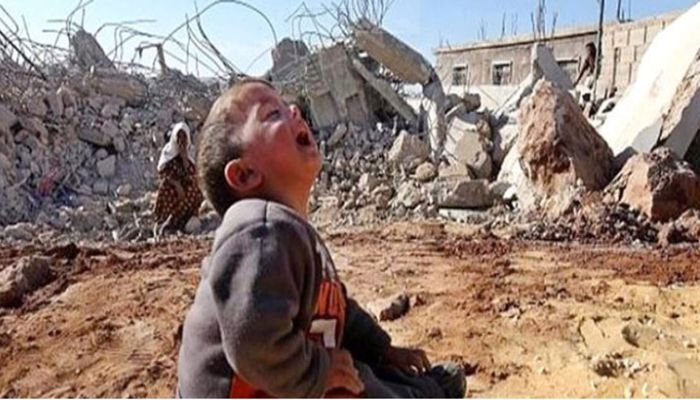
When people say, “The United States is the biggest warmonger in the world,” they often have strong evidence in mind. U.S. forces have been involved in wars and interventions across the globe for decades. There are well-known cases where U.S. actions have caused great harm - such as prisoner abuse at Abu Ghraib in Iraq, or drone strikes in countries like Yemen and Pakistan that have killed civilians. These are serious matters. They deserve honest discussion, investigation, and accountability.
But if we stop there, we risk misunderstanding the bigger truth: the U.S. is not the only country responsible for such actions. War crimes and state-sponsored violence are committed by many governments. If we only focus on one, we let others escape scrutiny.
The U.K.’s record -
Britain, often seen as America’s closest ally, has its own history of abuse - both in the colonial era and in modern conflicts. During the Iraq War, British soldiers were found to have used banned interrogation methods: hooding prisoners, forcing them into painful positions, and depriving them of food and sleep. The death of Baha Mousa in British custody in 2003 is one example; an inquiry found “serious, gratuitous violence” and the government paid his family compensation [ECCHR], [Wikipedia].
The U.K. has also faced accusations for colonial-era massacres. In 1948, at Batang Kali in Malaya, British troops killed 24 unarmed villagers [Wikipedia]. In Kenya’s Mau Mau uprising of the 1950s, thousands of people were detained, tortured, and in some cases raped. It took decades for Britain to officially recognize these abuses and pay some compensation [Wikipedia].
Not just two countries -
Of course, it is not only the U.S. and the U.K. Russia’s actions in Ukraine, Myanmar’s military operations against the Rohingya, and crimes committed by armed groups like ISIS all show that atrocities are global. The International Court of Justice and the International Criminal Court have investigated or condemned many of these cases, but justice is often slow and incomplete.
The real problem -
The problem is structural. Powerful countries often have the military capacity to act without fear of punishment. Domestic investigations are sometimes biased, and international mechanisms are weak. This is why the International Criminal Court struggles to bring leaders from major powers to trial.
What needs to change -
If we want to reduce war crimes and human rights abuses, we should:
* Demand impartial investigations for all countries, not just our rivals.
* Strengthen international institutions so they can hold even powerful nations accountable.
* Reduce the global arms trade and increase transparency in military operations.
War is not the property of one flag. The blood of innocent people is the same color in Baghdad, Kyiv, Nairobi, and Gaza. If we only shout at one government, we close our eyes to other crimes. Real courage is to look at all the guilty, even when they are our friends, our allies, or ourselves. Justice cannot have favorites. If we demand truth for every victim and punishment for every abuser, then we are not just talking about peace - we are building it.

Editor & Publisher
Dulal Ahmed Chowdhury
www.newsdiplomats.com
The News Diplomats
Cell: +1 (437) 365-4003 & +1 (647) 709-3389
Email: [email protected]
Toronto, Canada.
©২০২৩ সর্বস্বত্ব সংরক্ষিত || The News Diplomats